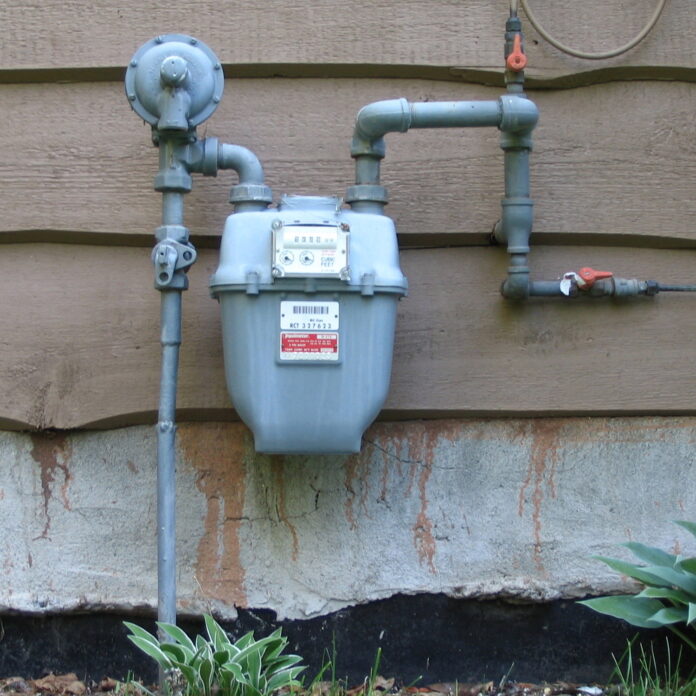A fixed charge on domestic gas customers, imposed by the Government of Pakistan, has ignited a heated debate over its legitimacy. The charge was included in the prevailing gas prices, sanctioned by the Government of Pakistan on October 30 and announced by OGRA on November 8. The crux of the controversy lies in the fact that the charge was not mentioned by the Oil and Gas Regulatory Authority (OGRA), the foremost gas regulatory body, in its final verdict on the gas tariff for fiscal year 2023-2024.
To grasp the problem, we need to first understand the gas pricing mechanism and OGRA. OGRA, instituted by the Federal Government on March 28, 2002 under the Oil and Gas Regulatory Authority Ordinance, 2002, is Pakistan’s paramount gas regulatory body. Section 6 of the Ordinance authorises OGRA to “prescribe, review, approve and regulate tariffs for regulated activities pertaining to natural gas and operations of the licensees for natural gas and marketing of refined oil products”.
OGRA determines the necessary tariff for gas in Pakistan, aligning with the revenue requirements of the two Sui companies, per Section 8(2) of the Ordinance. The bone of contention arises from the fact that OGRA’s final verdict — which based the revenue requirement for the fiscal year 2023-2024 on June 2 — makes no allusion to any fixed charges. It merely proposed a stipulated price of Rs.1,291/mmbtu. The Natural Gas Tariff Rules 2022 unambiguously state that “no licensee shall charge…any fixed or variable amount in excess of the relevant determined, approved, modified, or revised by the Authority”.
This chain of events has prompted the question of whether the current static charge in the gas prices is lawful. The Government has imposed it, yet OGRA has remained silent. Opinions on the legality of the matter are split. Consequently, we went and got both.
The legality of the fixed charge
A natural solution to this conundrum might be to consult OGRA directly, right? That is precisely what we did.
“OGRA’s role is the determination of prescribed prices of Sui companies (SNGPL and SSGCL) based on the petition filed by these companies, taking into account the revenue requirements which are based on the cost of gas as well as the operating costs of these companies,” elucidates Imran Ghaznavi, Spokesman OGRA.
“Fixation of category-wise consumer gas sales prices is the sole prerogative of the Federal Government, based on its socio-economic agenda and sectoral policies. The Federal Government has recently revised the gas sale prices for various categories of consumers, effective from 1 November 2023, including determination of fixed and minimum charges,” Ghaznavi adds.
Here’s the first snag. Whilst OGRA says the Government fixes the prices, it’s a bit more intricate legally speaking. “Fixed charges revision without cause and without OGRA setting the tariff are unlawful,” asserts Abdul Moiz Jaferii, Partner at HWP LAW Waheed Masood Jaferii Kayani. “It’s bad policy responding to a problem created by even worse policy. But this is a necessary stop-gap solution where a desperate regime is trying to balance the long overdue gas subsidy book, and I don’t see any court in the country intervening here,” adds Jaferri.
The bone of contention isn’t limited to whether the Government of Pakistan could make the decision or not. It extends to whether even such a provision exists. “The concept of ‘fixed charges’ bears no legal weight in the determination of gas prices. Fixed charges are solely pertinent to the calculation of electricity purchase prices, which are established in the electricity tariff. Moreover, the fixed charge component of the electricity tariff regime has been challenged in the Lahore High Court, and a decision is pending,” explains Taimur Malik, Senior Partner at Kilam Law.
However, in terms of this act being legal, the argument is that there is a confusion regarding whether the fixed charges are an increase in meter rent or a minimum bill.
“Had this increase been in the meter rent, the assertion of its illegality would have held water. The presumption is that the meter rent has surged. Meter rent falls under the jurisdiction of the OGRA, which issues a determination for it, and that determination can solely be executed by the OGRA, not by the federal government. However, this is not a case of meter rent,” clarifies Mirza Mehmood Ahmad, Founding Partner at Mirza and Tahir and former board member of SNGPL and SSGCL.
“What the government has enacted is treating this as a minimum billing—that this would be the least charge for a consumer to utilise gas,” Ahmad expounds. “We need to be cognisant of two types of prices: the prescribed price, and the sale price. The prescribed price is a baseline price that OGRA needs to generate revenue for activities in the sector. The sale price is the price at which the government notifies that gas will be sold to consumers. This doesn’t fall under OGRA’s domain. This is a policy decision, and as such, falls under the purview of the Government,” Ahmad concludes.
Perhaps the only surefire way to test both sides of the claim would be to take the matter to the court.




